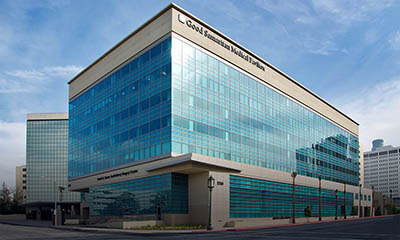Throat cancer is a serious and potentially life-threatening condition that requires prompt and specialized medical care. Many people wonder if ENT (Ear, Nose, and Throat) doctors, also known as otolaryngologists, are capable of diagnosing and treating throat cancer. The answer is a resounding yes. ENT doctors diagnose and treat throat cancer by playing a crucial role in detection, diagnosis, and long-term management. In this blog post, we will explore how ENT doctors are involved in the care of patients with throat cancer.
What is Throat Cancer?
Throat cancer refers to malignant tumors that develop in the tissues of the pharynx (throat), larynx (voice box), or tonsils. These cancers can cause a variety of symptoms, including a persistent sore throat, difficulty swallowing, hoarseness, ear pain, a lump in the neck, and unexplained weight loss.
How Do ENT Doctors Treat Throat Cancer?
The treatment of throat cancer depends on several factors, including the type, stage, and location of the cancer, as well as the patient’s overall health. ENT surgeons guide throat cancer treatment plans and work closely with a multidisciplinary team, which may include oncologists, radiologists, and surgeons, to develop a comprehensive approach. Treatment options may include:
- Surgery: Surgical removal of the tumor is often the primary treatment for throat cancer. ENT surgeons are skilled in performing various types of surgeries, ranging from minimally invasive procedures to more extensive operations, depending on the cancer’s stage and location.
- Radiation Therapy: Radiation therapy uses high-energy beams to destroy cancer cells. It can be used as a primary treatment or in combination with surgery and chemotherapy.
- Chemotherapy: Chemotherapy involves the use of drugs to kill cancer cells. It may be used in conjunction with radiation therapy (chemoradiation) or as a standalone treatment.
- Targeted Therapy: Targeted therapy drugs specifically target cancer cell molecules to stop their growth and spread. These drugs can be used alone or in combination with other treatments.
- Rehabilitation and Supportive Care: Treatment for throat cancer can impact speech, swallowing, and overall quality of life. ENT doctors often collaborate with speech therapists, nutritionists, and other specialists to provide comprehensive rehabilitation and supportive care.
Follow-Up Care
After treatment, regular follow-up appointments with the ENT doctor are crucial to monitor for any signs of recurrence and to manage any long-term side effects of treatment. These follow-up visits may include physical exams, imaging studies, and endoscopic evaluations.
Conclusion:
ENT doctors are integral to the diagnosis and treatment of throat cancer. Their expertise in head and neck conditions, coupled with their ability to perform specialized diagnostic tests and surgeries, makes them well-suited to manage this complex disease. If you or a loved one is experiencing symptoms that could be related to throat cancer, connect with our Los Angeles otolaryngologists and seek medical attention promptly. Early detection and treatment can significantly improve outcomes and quality of life.

























